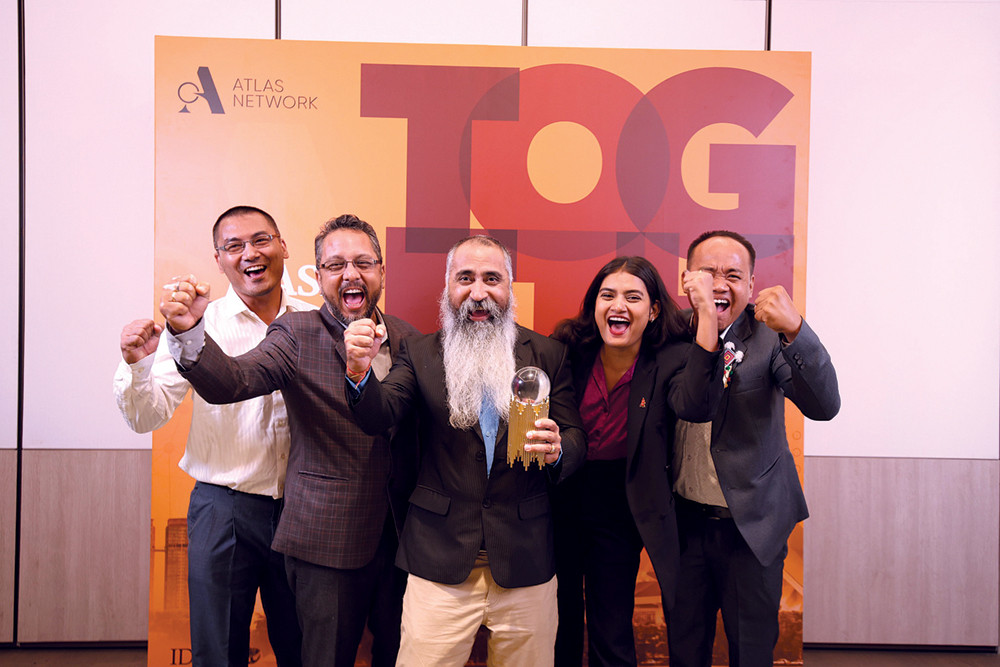
Text by Sajeet M. Rajbhandari
Out of the streets of Kathmandu rose a rather unexpected yet exciting start-up, Yatri Motorcycles. Born out of one man’s obsession with anything on wheels, paired alongside a strong desire to change the way we look at urban mobility, Yatri Motorcycles is certainly making some bold moves when it comes to shifting the paradigm in traditional mobility.
When asked where the idea to start Yatri Motorcycles stemmed from, Founder Ashim Pandey links it to his boyhood fascination with motorcycles. “Around grade-9 when I started to actually ride motorcycles, my fascination only grew stronger. I later on was also involved in some really exciting engineering projects during my undergraduate and graduate studies” reminisces Pandey saying that the entire process from concept, design, engineering to testing is what holds his fascination.
“The whole point of this project is to challenge the status quo.” Pandey claims. He explains that he envisioned Yatri Motorcycles as a brand that stood for quality, high-tech engineering, premium features and something that challenges the notion that Nepali product design does not meet world class level.
Pandey who previously worked at Doonkervoort -a Netherlands based car manufacturer - shares that some of the skill sets that he gained there have directly transferred onto Yatri Motorcycles. He elaborates, “An interesting thing about Doonkervoort is that it is a rather small company; this meant that the engineer who designed a part would in fact be the one that fabricated it, making for a very hands-on experience.”
The work for Project Zero, Yatri Motorcycle’s first product, started officially in December 2017. A little over two years in the making, Pandey e is positive about the progress that the company has made since its inception, coming up with two distinct renditions of Project Zero. “We tested v1.0 of Project Zero in June 2019 in Chitwan, and right now we are finishing up on the internal packaging of v2.0,” he shares.
He says that Yatri Motorcycles is gearing up for test rides for the public in March this year, with rolling out the final production model of Project Zero by summer of 2020.
“This is the first of its kind to be developed in Nepal and that made us think about how we started from ground up both as a company and a vision, hence the name, Project Zero. Plus, it sounded really cool,” Pandey lightheartedly shares.

When questioned about the iconic yet fresh take on the café racer style that Yatri Motorcycles has opted to use, Pandey says, “We at Yatri believe that design is really critical in defining a product, especially in the case of electric mobility in Nepal, because besides a few companies here and there, most options for practical electric mobility really lacked a strong design element.” He explains, “We really liked the proportions of the café racer from a design point of view. While maybe not the most comfortable ergonomically, the stance that the café racer is powerful and we sought to make that statement as a company. Opting for the café racer style was an obvious choice for us.”
However, the Yatri team is open to the idea of diverging from this design philosophy in future products. Pandey assures that Project Zero will be treated as a legacy model that will keep getting better upgrades over time. The company is also looking at other motorbiking segments such as the enduros and even more practical commuter bikes to diversify their product lineup. “While Project Zero is a premium product, we are already working on new model for the entry-level market. We feel that we would make the most impact in the mobility domain from that level,” shares Pandey. He hints that while it is still in early stages of development, they aim to launch a more affordable and commercially viable model as early as the end of 2021, compared to its more premium counterpart that expects only 50 units in the first lot of manufacture.
From a performance perspective, Yatri Motorcycle believes that Project Zero is on par or better than most of its competitors. Falling under the 300cc segment as well as pairing the torque figures with the stop-and-go traffic that Nepal has, the team feels that Project Zero will be a strong consumer option.
For now Yatri Motorcycles relies on a multitude of parts and services from other manufacturers both inside and outside Nepal in order to ensure that they deliver the best possible product. Nonetheless, doing so also brings with it a number of different economic factors into play. “Of course, when we outsource, it’ll be more expensive than manufacturing some of our designs in-house. But sometimes when you look at the economy of scale, even if you do outsource it, there is a point in time when outsourcing the design makes more financial sense,” elaborates Pandey. He quickly adds, “We are actually working on our own state-of-the-art machine shop as we speak.”
Does outsourcing manufacture to foreign factories mean that Yatri Motorcycles will be treated the same way as other automotive companies? Pandey feels that they won’t and shouldn’t be treated as a foreign company, saying, “Just like how Apple products are designed in California and made in China, I think the same model applies to us.”
However, he does mention that the true expense lies in importing individual parts into the country. “What actually is happening is that when we bring in our parts -not simply mass-produced parts like brake calipers, but even the parts that we personally designed - each part is given a harmonized code that immediately classifies it as motorcycle spare part. This means that we go through the same rates as other dealerships do, all the way up to 30%-40% in taxes. For now, it is actually more profitable for us to import a completely built unit into Nepal rather than assembling it here,” shares Pandey, who argues that this is not the vision they have for Yatri Motorcycles, stating that they want to take the steps towards establishing the, long overdue, automotive industry in Nepal.
Yatri Motorcycles is also coming out with what they call the “Yatri Hub”, which they consider as an ecosystem for all Yatri products and services. “It’ll be one of the most iconic elements of our motorcycles, helping us differentiate from the competition,” claims Pandey. From information on how much money you have saved by going electric per kilometer to real-time tracking to even booking appointments for servicing your bike, Yatri Hub wants to change how users interact with their motorcycles. Besides this, the company is also planning on coming up with accessories and after sales products for Yatri Motorcycles. Pandey tells that, “Especially for Project Zero, we plan to have custom parts that are built to the design that users want.”
According to Pandey, the end goal for Yatri Motorcycles had always been to become an international brand.


.jpg)


.jpg)